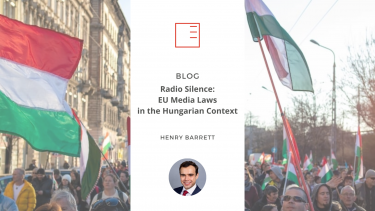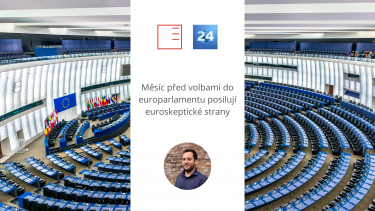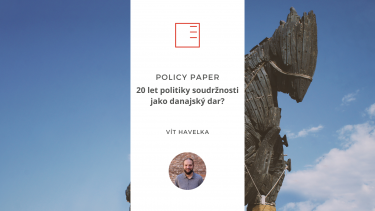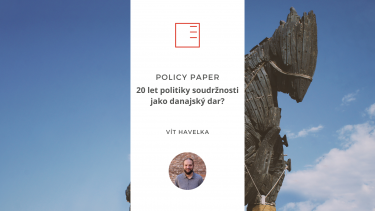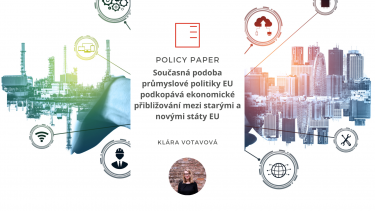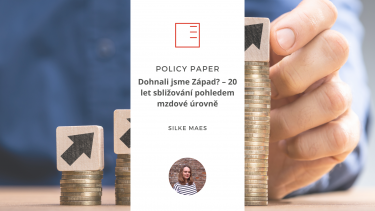BLOG | Radio Silence: EU Media Laws in the Hungarian Context
The European Union has passed major legislation to try and secure media freedom and independence in recent years. However, for the state of media pluralism in certain Member States, these efforts have come too late. In the Hungarian context, a pro-ruling party media ecosystem stands well-entrenched in the private and public media sector. Writes our researcher, Henry Barrett, a Fulbright-Schuman Grantee.
Show moreBLOG | Rádiový klid: Mediální zákony EU v maďarském kontextu
Evropská unie v posledních letech přijala zásadní legislativu, aby zajistila svobodu médií a nezávislost. Nicméně v určitých členských státech tyto snahy o stav mediálního pluralismu přišly příliš pozdě. V maďarském kontextu: mediální ekosystém ve prospěch vládnoucí strany pevně zakotven v soukromém i ve veřejném mediálním sektoru. Píše náš výzkumník Henry Barrett, držitel Fulbrightovy-Schumanovy grantové podpory.
Show moreČT24 | Euroskeptic parties strengthen a month before the European Parliament elections
The European elections are about a month away. Czechs will vote for 21 of the 720 MEPs. This will be the first election since Brexit, the Covid-19 pandemic or the start of the Russian invasion of Ukraine. Turnout is expected to be higher than in the last elections five years ago, with right-wing and Eurosceptic parties strengthening. Žiga Faktor, deputy director and head of EUROPEUM Institute's Brussels office, described the possible reasons for daily broadcast of Czech TV.
Show more
Report | Women in Digital Space (and AI): Looking into Central Europe: cases from Austria, Czechia, Poland and Slovakia
Our researcher Silke Maes in her latest report addresses issues of cyberviolence on women and examines whether women in the CEE benefit from digitalisation (and AI). The report looks into how women use and contribute to the digital space, examines opportunities and challenges and proposes recommendations for a more inclusive digital space.
Show moreReport | Ženy v digitálním prostření (a AI): Jak je na tom střední Evropa - příklady z Rakouska, Česka, Polska a Slovenska
Naše výzkumná pracovnice Silke Maes se ve své nejnovější práci zabývá nejen otázkami kybernetického násilí vůči ženám, zároveň také zkoumá, zda ženy ve střední Evropě profitují z digitalizace (a umělé inteligence). Zpráva se zabývá tím, jak ženy využívají digitální prostor a jak k němu přispívají, zkoumá příležitosti a výzvy a navrhuje doporučení pro inkluzivnější digitální prostor.
Show morePolicy Paper | 20 years of cohesion policy as a "Beware of Greeks bearing gifts"?
It has been 20 years since the Czech Republic and 9 other Central, Southern and Eastern European countries joined the European Union. This was on the promise of increased prosperity and the so-called economic catching-up of the post-communist part of Europe. Cohesion policy was to play a key role here. Vít Havelka writes in his Policy Paper.
Show more
Policy Paper | 20 let politiky soudržnosti jako danajský dar?
Je tomu již 20 let od doby, co Česká republika a dalších 9 států střední, jižní a východní Evropy vstoupily do Evropské unie. Stalo se tak za příslibu zvýšení blahobytu a tzv. ekonomického dohnání postkomunistické části Evropy. Klíčovou roli zde měla hrát politika soudržnosti. Píše Vít Havelka ve svém textu.
Show more
Policy paper | Current EU industrial policy undermines economic convergence between old and new EU countries
The post-communist states of Central and Eastern Europe, including the Czech Republic, joined the European Union at the height of globalisation and the dominance of the so-called Washington Consensus policies. However, the global economic crisis of 2008 showed shortly afterwards that these policies had their limits. Read more in Klára Votavová's Policy Pepeu.
Show morePolicy paper | Současná podoba průmyslové politiky EU podkopává ekonomické přibližování mezi starými a novými státy EU
Postkomunistické státy střední a východní Evropy, včetně České republiky, vstupovaly do Evropské unie v době vrcholné globalizace a dominance politik takzvaného Washingtonského konsensu. Globální ekonomická krize roku 2008 však krátce poté ukázala, že tyto politiky mají svoje limity. Více se dočtete v Policy Pepeu Kláry Votavové.
Show morePolicy paper | Have we caught up with the West? - 20 years of convergence through the lens of wage levels
This year, the EU marks the anniversary of the biggest wave of enlargement in its history, when the Czech Republic joined the Union along with nine other Central and Eastern European countries. One of the main promises associated with enlargement was that the new Member States would catch up with Western Europe in terms of living standards. Read more in Silke Maes' policy paper.
Show moreStaroměstské náměstí 4/1
Prague 1 - Staré Město
110 00
tel.: +420 212 246 552
email: europeum@europeum.org
https://www.europeum.org
